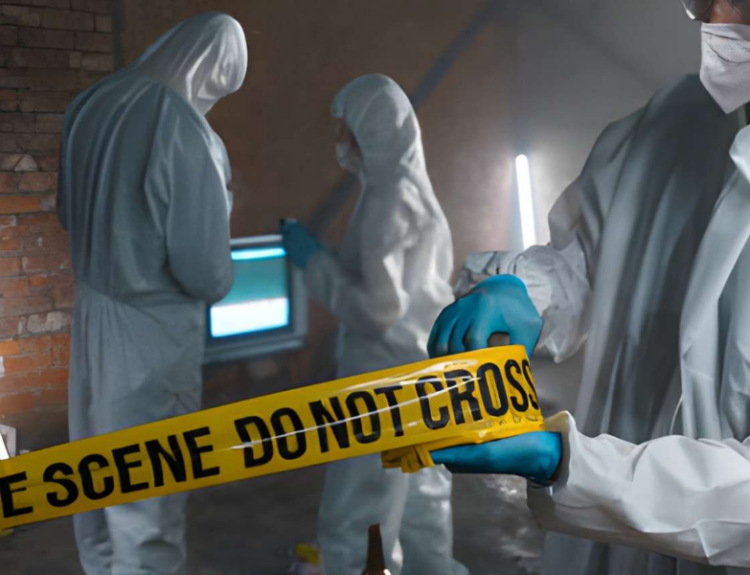Becoming a criminal lawyer is a career journey that’s as demanding as it is rewarding. It is a career that requires years of education, training, and personal dedication. Whether it is the call to serve justice or the urge to be involved in high-stakes courtroom drama, people who choose this profession usually have to respond to some deeper personal drives. The question you may ask is: How long does it take to become a criminal lawyer? Or more practically, what does it cost, and is it worth it? This blog will address all of that in a way that what you need to do in a law school, what to expect in terms of salary, day-to-day life, and even the psychological aspects of this career.
Criminal lawyers do not only argue in the court. They enforce constitutional rights, and are frequently the barrier between a citizen and the full force of the criminal justice system. Whether you are considering this career or simply wondering what it is really like, we will take a look at what it is all about.
How Many Years to Become a Criminal Lawyer?
It usually takes 7-9 years after high school to become a criminal lawyer in the U.S. This is how the years are organized:
To be a lawyer, you must first complete a four-year bachelor’s degree. Although there is no specific major requirement, most students take up criminal justice, political science, or psychology to equip themselves with what awaits them. Other universities have pre-law programs that prepare you with some of the basics of law.
Then there is law school, typically three years at an ABA-approved school. Admission is competitive and requires a good GPA, good letters of recommendation, a personal statement, and a decent LSAT score. In law school, students immerse themselves in such topics as constitutional law, evidence, ethics, and criminal law itself.
Most students spend four to six months preparing to take the bar exam after graduation. This test is your passport to the real practice of law. You can have as many degrees as you want, but without passing them, you cannot be licensed.
Some attorneys work an extra year or two in clerkships, internships, or other criminal law training. Such experiences help them learn practical skills; they also build professional networks, which are useful in the legal profession.

Although the time course might be lengthy, every stage is important in the development of a qualified, self-confident criminal lawyer who is ready to work on real cases.
How Much Does It Cost to Become a Criminal Lawyer?
The financial cost of becoming a criminal lawyer can be as different as the location and mode of studying. What are the five common pathways?
Such as a four-year college and university, where a normal bachelor’s degree costs around $10,000 to $20,000 per year; a law school costs $25,000 to $35,000 per year; together they tally close to about $120,000 to $180,000 for out of state. This is the most affordable route, mainly for in-state students.
However, private universities may be costlier. Bachelor’s degrees can be as expensive as $35k to $50k annually, and law school can easily surpass $60k annually. The total? Around a quarter of a million to half a million dollars. It is expensive, but in many cases is justified by superior career placement services and alumni networks.
On the high-end of the scale are Ivy League and the best law schools, where the total education experience can cost up to $450,000+, but they are the finest schools and universities to pursue law education.
Some people want a different way. Others get their law degrees online or in a mix of ways. That lowers the total cost to between $100,000 and $150,000. The program must have ABA approval. If not, you may not take the bar exam.
And the more economical community college transfer option: two years to get an associate degree, transfer to a state university, and then law school. This route will help you cut down on your undergraduate expenses considerably without compromising on your education.
And don’t overlook other expenses, LSAT prep ($1,000 – $2,000), bar exam and prep ($3,000 – $5,000), and the cost of living during 7+ years (usually more than $100,000). Some of this can be covered by scholarships and federal aid, but planning is the key.
How Much is a Criminal Lawyer’s Salary?
What’s the compensation? The answer differs by circumstances.
Salary ranges of $50,000 to $75,000 do apply if, for example, the novice is getting his or her start in a small firm or public defense. These positions might offer huge caseloads with thin resources but yield great trial experience and grit.
In the 5-to-10-year range, somewhere between $80,000 and $120,000 would be workable. These senior-midlevel jobs usually deal with more complicated cases, greater independence, and even supervising others.
Partners in law firms or niche practitioners get into the $150,000 to $300,000-plus salary bracket. Bonuses, profit-sharing, and high-profile case work can add to it.
There are also federal criminal attorneys, U.S. Attorneys, or attorneys assigned to agencies like the FBI. Those jobs are secure and well paid, starting with an annual salary of at least $150,000, and you’re enjoying the enhanced reputation of working on national criminal justice level.

Is Being a Criminal Lawyer Dangerous?
It is a reasonable question to ask, particularly when the threats to criminal lawyers are exaggerated in the media. Is it risky to be a criminal lawyer, then?
Most of the time, the answer is no, but this does not suggest that it is a stress-free job. The criminal lawyers, especially the ones who work with violent offenders or the public defenders, sometimes experience threats or emotional trauma. In rare cases, there are physical threats.
More frequent threats are psychological: excessive stress, emotional fatigue, burnout due to long working hours, and large caseloads. It can also affect the mental health of a person when reviewing graphic case material or defending unpopular clients.
For lawyers to maintain a work-life balance, they must maintain good supportive systems and professional counselling.
What Does a Criminal Lawyer Do on a Daily Basis?
A criminal lawyer’s life roles are usually fast-paced and hardly repetitive. One day, you may spend your full day in court, while the next day may be full of interviews or reviewing research with clients. This is influenced by the time of day.
Mornings: Most often, it is about emails, recent reports, and court attendance. At around 9:00 AM, most of the attorneys or lawyers are already arguing motions in the court, appearing in different bail hearings, or enduring arraignments.
Midday: Following court proceedings, was for specific client contact as well as strategizing. What might fall under this category are reviewing police reports, calling witnesses to engage them in conversation, or even recreation of the crime scene with experts.
Afternoons: The lawyers were back at the office-getting into legal research, drafting motions, or negotiating plea deals with the DAs.
Evening: It does not end at 5:00 PM. Many of the attorneys will then prepare their trials, write up briefs, or otherwise take care of administrative chores such as billing or case management.
It is a fast-paced job in which flexibility, emotional intelligence, and super-organized minds are required. And it is hard, but it is a fulfilling career.
Conclusion
So, how many years to be a criminal lawyer? Seven to nine years of intense training and schooling. Although it might cost a little and take many hours, the careers where motivation stems from justice and a desire to make a difference in society will not only be rewarding financially but will also carry something deeper for the soul.
Criminal attorneys are on the front line of the defense of rights and the molding of lives. When you are serious about becoming one of them, know what you are getting into, but also know how great the potential is on the other side.

More Careers in Criminal Justice
From Military to Public Safety Career Transition
How to Become a Criminal Psychologist?








